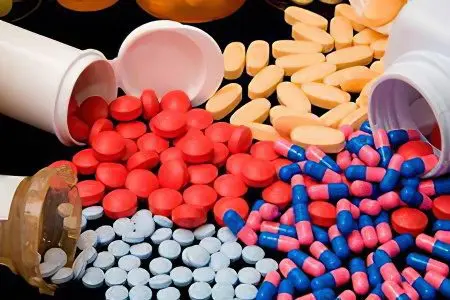Contents
Most often, women suffer from cystitis: almost 90% of all clinical cases of cystitis occur in the female part of patients. Contrary to popular belief, cystitis is by no means a harmless disease. Postponed cystitis without adequate treatment leads to the development of many severe complications, fraught with disability and a significant decrease in the quality of life. Therefore, it is obvious that it is unacceptable to self-medicate. As soon as the first signs of the disease appear, you need to consult a doctor and undergo an appropriate examination.
However, not all so simple. It often happens that the first signs of the disease pile up and grow. A woman experiences painful manifestations of cystitis: pulling pains, burning and cramps, frequent urge to urinate, etc. however, access to the toilet is not possible at the moment.
The rhythm of life dictates its own conditions, getting an appointment with a urologist is not always easy: there is simply not enough time, family, work, long queues. Therefore, in the best case, a woman can get to the urologist in the midst of the disease, when it is vital to start therapy.

Before any woman in a similar situation, the question arises: what to do, how to help yourself, what pills to take with cystitis?
This material contains information on the main drugs that are currently used to treat diseases of the excretory system.
It is important to keep in mind that self-medication, without the participation of a doctor and conducting the necessary research, is not the best solution. Cystitis may not be an independent disease, it may not occur in isolation, but in combination with diseases of the genital organs, other internal organs (including the kidneys: nephritis, pyelonephritis, urolithiasis, and this is only a small part of possible concomitant pathologies).
“Untreated” cystitis is rapidly turning into a chronic form, and this is a direct path to disability. The structures of the bladder are destroyed, the organ loses elasticity, cystosis is formed, and over time, the risk of malignant degeneration of tissues increases due to constant inflammation.
Cystitis often develops due to the penetration of pathogenic and opportunistic microflora into the urinary canal (in the vast majority of cases we are talking about Escherichia coli). Therefore, the most common cause of cystitis is a violation of hygiene rules, including wearing tight synthetic underwear, thongs, etc.
The development of cystitis can be provoked by the partner’s microflora (the so-called defloration variant).
Also often cystitis develops due to mixed infections. In this case, the disease is secondary and develops against the background of genital infections.
Review of cystitis pills to relieve pain and inflammation from the site “my family doctor”
Herbal remedies for cystitis
Herbal medicines are herbal medicines. They act most effectively in the initial stages of cystitis, when specific symptoms have not yet appeared. In all other cases, phytopreparations are used as an aid in combination with traditional medicines.
In pharmacies you can find:
Lingonberry leaves. Lingonberry leaf is used for all known diseases of the excretory system. It has a pronounced anti-inflammatory, astringent and diuretic effects. The composition of the lingonberry leaf includes substances that suppress the vital activity of Staphylococcus aureus. In combination with traditional drugs, it has a beneficial effect on the immune system, and also increases the effectiveness of antibiotics. It is better to purchase in the form of crushed raw materials and brew yourself. Filter bags have lower efficiency. The cost is about 50 rubles.
Cyston. Includes many extracts of various plants. Thanks to the substances included in the composition, it has anti-inflammatory, antimicrobial and diuretic effects. Increases the effectiveness of traditional drugs. By itself, it is effective only with prolonged use. The cost is about 300 rubles.
Kinefron. Kanefron is used as an additional remedy for acute cystitis, as well as for the prevention of exacerbations of chronic cystitis. Has an analgesic effect. The cost is about 300 rubles.
Monorail. Not to be confused with Monural, it is an antibiotic. Monurel is a phytotherapeutic drug based on cranberry extract. It has a complex effect, relieves pain, fights an infectious agent, eliminates inflammation. Since the cranberry (in the form of an extract) that is part of Monurel is harmless, the remedy is also recommended as a measure to prevent exacerbation of chronic cystitis. The cost is about 500 rubles.
Phytolysin paste. It is based on orange, sage, pine oils. It has a complex effect, fighting all manifestations of cystitis, from inflammation to pain, including eliminating the source of the disease. The average price is 230 rubles.
Other medicines for cystitis

Other medications for cystitis include:
Preparations for the restoration of the mucous membrane of the bladder. Recently, the so-called glycosaminoglycan-replacement therapy has been widely used for the prevention and treatment of chronic cystitis. In healthy people, the bladder is lined on the inside with a protective layer that protects the lining of the bladder from contact with urine and/or bacteria in the urine. This protective layer is made up of substances called glycosaminoglycans, the most important of which are hyaluronic acid and chondroitin sulfate. One of the causes of chronic cystitis is the destruction of the protective membrane of the bladder, respectively, the introduction of protective layer components (sodium hyaluronate, chondroitin sulfate) into the bladder will help restore it and protect the bladder from contact with bacteria and toxic components of urine. The most famous drug in Russia for restoring the mucous membrane of the bladder is “Urolife”. Available in the form of capsules for oral administration and solution for injection into the bladder.
Antispasmodics. The main cause of pain in cystitis is muscle spasm. To eliminate the pain syndrome, antispasmodic drugs are used, such as No-shpa, Drotaverine. These are the most powerful antispasmodics.
Anti-inflammatory drugs (NSAIDs). Non-steroidal anti-inflammatory drugs such as Ibuprofen (trade names, Nurofen, Mig, Faspik, Ibuklin, etc.) effectively relieve inflammation.
Probiotic preparations. Cystitis rarely develops in isolation. Often it acts as a secondary infection in relation to infectious lesions of the vagina and intestines. Therefore, it is important that the microflora of the mucous membranes of the external genital organs and the colon is in order. In order to normalize it, courses of probiotics containing lacto- and bifidobacteria are prescribed: Hilak Forte, Acipol, RioFlora immuno, RioFlora Balance, bifiform.
At the end of treatment, you should contact a specialist gynecologist and gastroenterologist.









